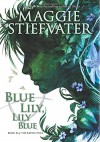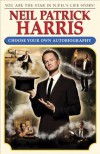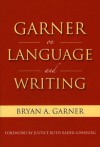Currently reading
Daring Greatly: How the Courage to Be Vulnerable Transforms the Way We Live, Love, Parent, and Lead
Blue Lily, Lily Blue
Neil Patrick Harris: Choose Your Own Autobiography
Last of the Curlews
Recovering for Psychological Injuries 2nd Edition 0941916510
Garner on Language & Writing
To the Lighthouse
 To the Lighthouse pours over me, takes me in, cools my spirit. I come to Virginia Woolf for sympathy and plunge myself into the waves of her world, conspiring with the blunders and satisfactions of her people, but only for a moment. Just as soon as the words touch me, they steam away, leaving behind only vaporous phantoms of a house, a garden, marriage, family, waves, and a lighthouse. I don’t remember them, only their outline. But actually, the story is reality, and I am the phantom. My writing is a pose; Woolf’s is a vision.
To the Lighthouse pours over me, takes me in, cools my spirit. I come to Virginia Woolf for sympathy and plunge myself into the waves of her world, conspiring with the blunders and satisfactions of her people, but only for a moment. Just as soon as the words touch me, they steam away, leaving behind only vaporous phantoms of a house, a garden, marriage, family, waves, and a lighthouse. I don’t remember them, only their outline. But actually, the story is reality, and I am the phantom. My writing is a pose; Woolf’s is a vision. This is the most domestic of what I have read of Woolf, but complexly so, intimately so. It is not romantic, but it is comforting and sympathetic. It is about satisfactions and dissatisfactions. This is the third (second and a half?) time I’ve read To the Lighthouse, but the first time I saw its beauty. This type of Woolf story, in my experience, becomes more real with re-readings. I learn what glasses to put on when I take up the book, so that I can see into its waters and the stories and shapes beneath the surface. The rest is not about the book, but about what it brings to mind, what it means to me. Also, perhaps spoilers, or at least alert to my badly laying down here some of Woolf’s phrases because they are knocking around in my head.
My own Mrs. Ramsey, in her comforting, regal way congratulated me on my successes in law school recently. I must take the bar myself sometime, she joked. I’ll be able to pass it just from hearing Mr. Ramsey talk about the law. “And is there any special boy in law school?” she asked. No, I answered, no special boy. But there must be a special boy for the conversation to continue, she thought. And the conversation must continue. But not without a special boy. Then we could talk about the intimacies and foreignness of men, with their socks and cigars and silences. Iron sharpens iron, Mrs. Ramsey thought. Without the special boy, without the marriage, our irons become dull; we lose our best selves.
“James, you know,” my own Mrs. Ramsey said, “I think he has a girlfriend now. Though when I was visiting, he didn’t say for sure. He was always more sensitive than my other boys. He was always my delicate spirit.”
“Oh, that’s nice,” I said warmly with a smile. When their James was moving to Eugene, the Ramseys all approached me separately. “How old are you?” they would ask. After I replied, they said without a pause, “Have you met James?” Or in the middle of discussing some details of their James moving they would pause and turn to me, “How old are you?” they would ask again. On his first day in town, they took me to see a movie with them. They all sat in a row when I arrived, so that I had to climb gracelessly across all of them and sit next to James. We were sent on walks together. Because you must marry. Women shouldn’t argue, can’t write.
Then, later, on a tour bus – I’m not kidding, really, on a tour bus – a friend and I talked about Virginia Woolf. How beautiful she was. Was she the smartest person who ever lived? How could her writing be so opaque and then suddenly transparent, as though the change was in us, and we had been looking through it the whole time. And James said, “Bah! Virginia Woolf. She can’t write.” Who can then? we asked. “Emily Dickenson.” I said, I don’t typically care for poetry.
James’ brother, sitting across the aisle burst out, “You don’t care for poetry?! How is that possible?! Poetry is life!” I like some, I said, but not all. “Who do you like?” My favorite is Li-Young Lee. He stopped, still, and looked at me, suspicious. “Are you joking?” No. “But he’s my favorite.” Irises, I said. City in which I love you, he said. He thought I loved Li-Young Lee for him, at him. And a door in my head banged shut, but in my heart a window opened. I worried that it opened to him, but it didn’t. It opened to you, to tell you this story. Later, I said, “Do you like tattoos?” He said, “They can be hot on some girls, but not usually.” I smiled, having not thought to ask whether they were hot, but didn’t correct him.
But you must marry. Women can’t paint, can’t write.
“The wedding was beautiful and funky, just like them,” Mrs. Ramsey told me after congratulating me on my law school successes. We sat outside at a table, shaded from the sun by an umbrella. Kids played in the pool and threw frisbees on the lawn. I held my friend’s baby while she high-fived the patterns on the glass table. James’ brother married the weekend before. Because you must marry. While Mrs. Ramsey’s brother drove the newlyweds to their hotel, he sang Sunrise, Sunset, and the new bride cried to be welcomed into such a family. So it is a mercy it wasn’t me because I would have laughed inappropriately, unable to sympathize, and that’s no kind of wedding story.
Instead, I learn to move the tree to the middle. I try to balance the shapes of how I see the world, and I move the tree to the middle. I refrain from telling Mrs. Ramsey about a friend who bubbles over talking about finally being herself now, divorced. It shouldn’t mean more to me that someone is happy single than happy married. And it does not mean more. I can balance the shades of my vision of life without disrespect to the mother and child in the painting. They mean something to me as well. It all means something: the pattern on the table, the clippings from a magazine, the lighthouse, the waves, marriage, the flowers in the garden, the magic fish, the cost to repair a greenhouse, thinking to Z, the shawl hanging on a picture frame, children, handing someone tools to fix a car, milk, books, writing the last sentence of a review.









